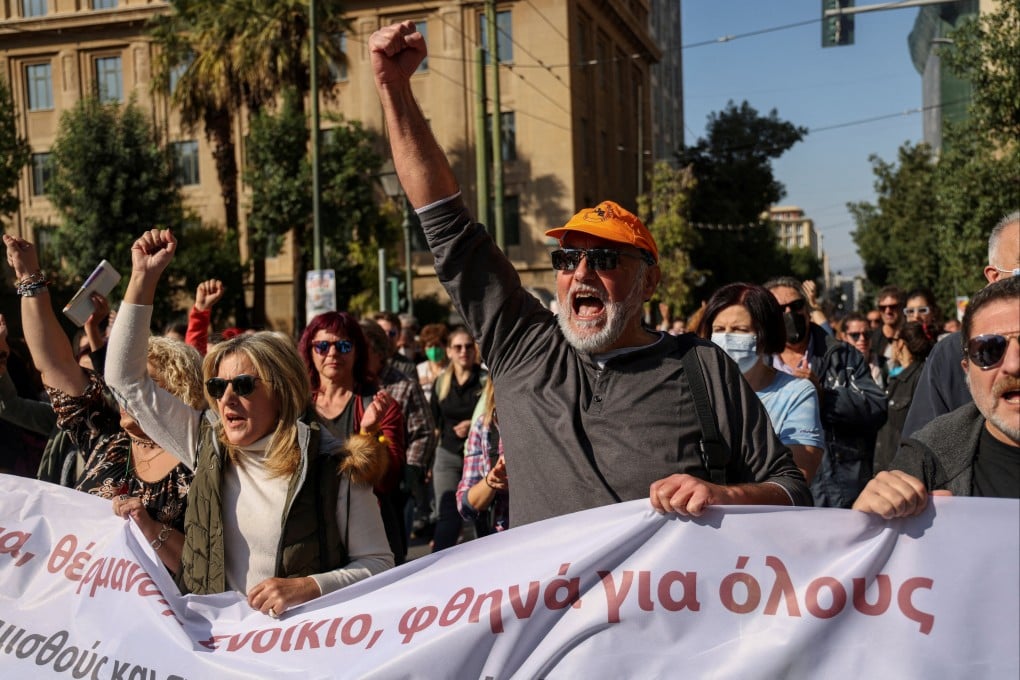Advertisement
Opinion | Europe is overestimating its solidarity and global influence in trying to shut out Russia
- As Europe faces economic and social uncertainty, it’s clear that leaders have made several false assumptions
- They believed the region and the wider world would unite against Russia, that they could easily cut economic ties with Moscow, and that their people would bear the outcome no matter what
Reading Time:3 minutes
Why you can trust SCMP
7

In Greece, unions representing 2.5 million workers have gone on an “inflation strike” to protest against the rising cost of living. In France, protests over the state of the economy attracted over 100,000 people. In the Czech Republic, almost 70,000 people demonstrated against the EU and Nato, and called for the Czech government to resign. In Germany, nearly 25,000 people across multiple cities protested against energy prices. It’s a similar story in Romania, Belgium, and Italy.
Advertisement
The protests spreading across Europe today are unlike any that have taken place recently. They are not about human rights or climate change, which only draw out certain groups. Across the continent, Europeans are calling for the same things: bring down prices, solve the energy crisis, and end the war.
It’s becoming clear that the decisions Europe’s leaders made months ago regarding Ukraine are now biting. If protests and strikes are just the beginning, what happens next?
The answer to that depends on the choices made in the coming months. Any effective solution requires the European political class to accept a hard truth: when it comes to the Ukraine war, it miscalculated everything.
First, Europe assumed it could call the shots for the world. From taking control of Russian assets to pressuring other nations to cut their Russian ties, Europe believed it alone could derail the Russian economy, and set a tone that would be followed by everyone else. However, the opposite occurred.
Advertisement
Governments representing just 16 per cent of the global population have sanctioned Russia, meaning few nations have been willing to put Europe’s interests ahead of their own. And, while Europe seeks to “wall off” Russia’s economy, other nations are opening up to Russia in new ways, such as by pricing Russian energy in UAE Dirhams.

Advertisement
